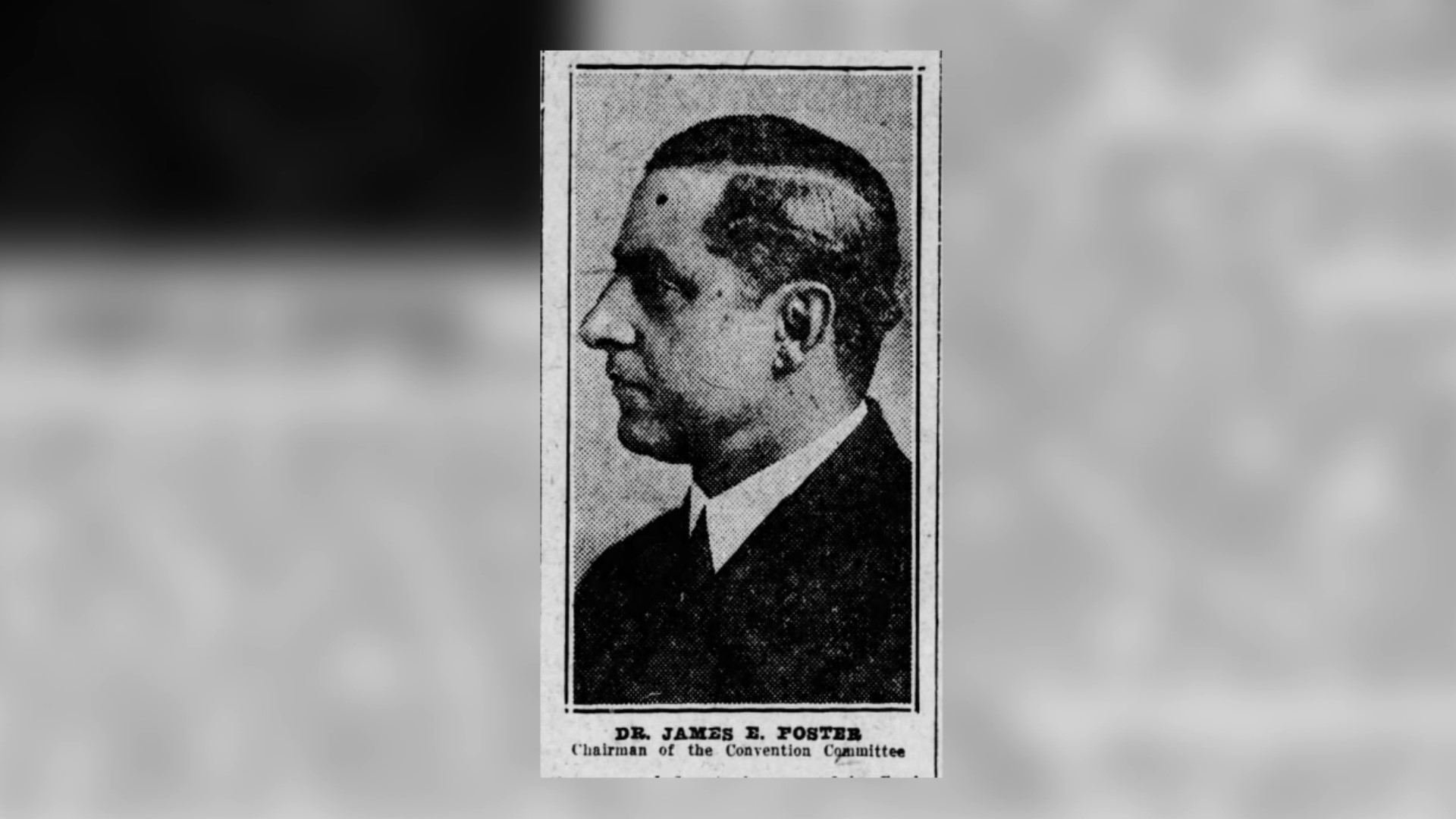SCRANTON, Pa. — As we begin our series Black History Month: Health, Wellness, and Legacy, we thought we should start with a story that's been waiting to be told for more than a century.
Newswatch 16's Stacy Lange introduces us to Scranton's first black physician, whose story is still starkly relevant today.
For more than a century, Dr. James E. Foster's name was just one in a long list inside Scranton city directories stored at the Lackawanna Historical Society.

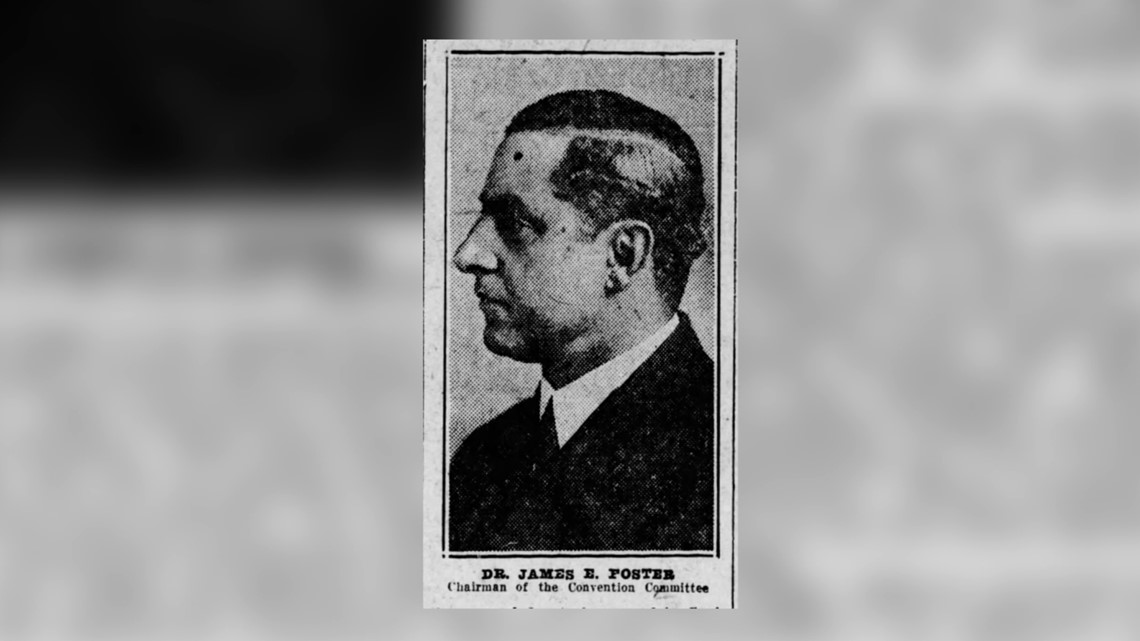
Foster's medical practice first pops up in the 1916 directory two years before Scranton, and the entire world faced a deadly pandemic.

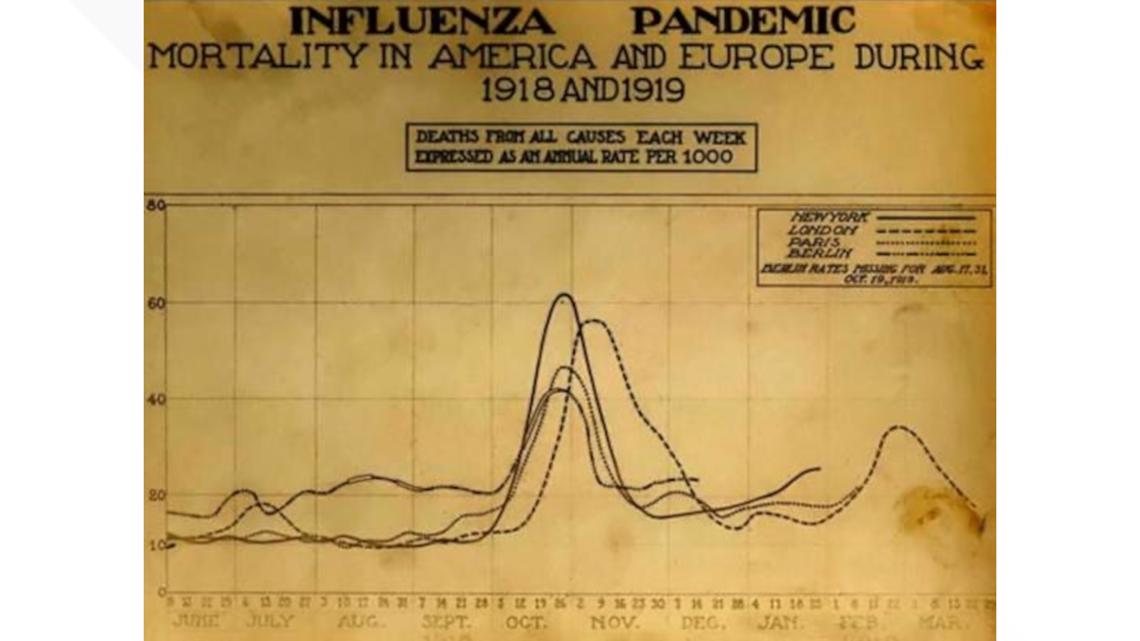
Foster is believed to be the first black doctor to practice in Scranton. But, much of his story, and the story of the black community during the 1918 influenza pandemic, went untold until Glynis Johns, founder of the Black Scranton Project, started digging in 2020 as the world faced another pandemic.
"During that time, there was not much reporting on the black community. It's safe to say they might have been disproportionately affected by the pandemic, but it's kind of hard to tell," said Glynis Johns. "There's not much around to hear that black community."
Johns learned through her research that Dr. Foster was one of a limited number of doctors in Scranton who was willing to treat patients ill with the Spanish flu. Historians with the Lackawanna Historical Society say the parallels between that pandemic and this one are stark.
"It was just this terrifying all hands on deck, you either got really really involved in it, or you were trying to stay away," said Sarah Piccini, the assistant director of the Lackawanna Historical Society. "People are cautious about covid patients now."
Dr. Foster was one of Scranton's leading caretakers during the 1918 pandemic. Journalists at the time reported on Dr. Foster caring for nine members of a white family who were sick. Foster paid for their treatment out of his own pocket.
"There was a Scranton Times article in 1920 that mentioned doctors in the area and that Dr. Foster had the least amount of deaths on his hands during that time," added Johns.

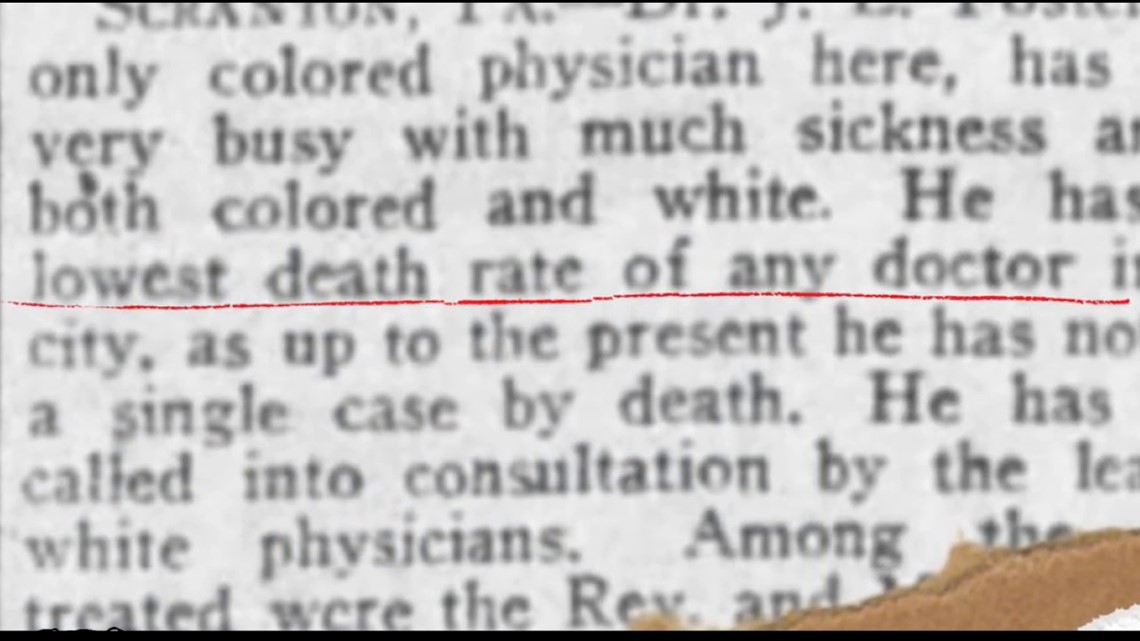
But Dr. Foster wasn't immune to the racism of the time. In 1917, he was arrested for simply being in the presence of a white woman.
"We like to think that everything in Scranton was rosy, but it wasn't always. You can find those stories kind of tucked in," said Piccini.
As the flu pandemic came to an end, Foster turned his focus on the health and wellness of black people in Scranton.
"He cared so much about health and wellness within the black community and understood that we are disproportionately affected in the type of care that we're able to receive and the types of food we have access to and the education," said Johns.
Foster spoke publicly about racism and the divides between black people and white people in Scranton. The doctor led efforts to observe National Negro Health Week locally. That week was the precursor to what we now celebrate as Black History Month.

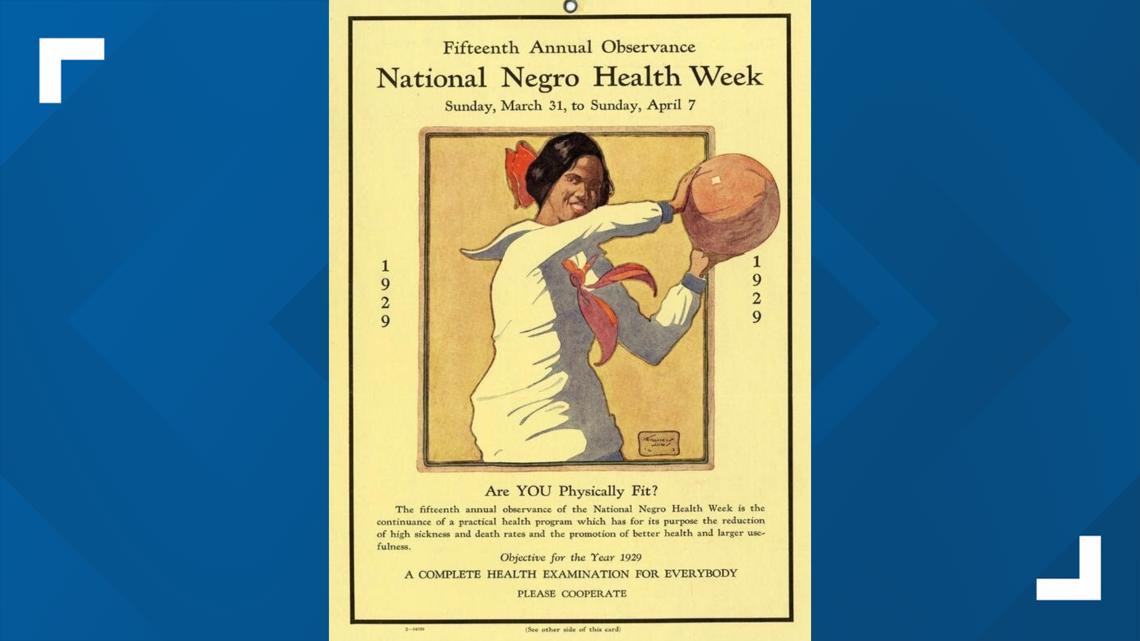
"He was putting together health programs, educational things in Scranton for the black community," said Johns.
That community was small when Dr. Foster was in practice. 1920 census data shows there were just more than 500 black men and women living in Scranton. A city of almost 150,000 people at the time.
But Foster believed the black community deserved a space. That's a mission Glynis Johns still strongly believes in.
"He was the first person to say, 'I think we should have a community center, and this is what it should look like.' He was one of the first to put his voice out there, publish it and say why it's important," said Johns.
Foster founded the Progressive Center, which still exists today on Olive Street, but it's no longer a dedicated community center for Black people.
Johns is looking to bring that back. She said, "A lot of the things that Dr. Foster was saying are a lot of the initiatives I'm still continuing out here in the community center."
Johns and Black Scranton Project acquired an old bank along North Main Avenue in Scranton last year. It's becoming the Black Scranton Project Center for Arts and Culture. A place, Johns believes, Dr. James E. Foster would be proud of.
"The baton is literally waiting to be picked up. So, I just felt like I can do it or at least try, and it's working. I'm appreciative of the words he has left behind," said Johns.
Repeating those words and telling Dr. Foster's story means he's no longer just a name.
For more Black History Month stories from WNEP, click here.

